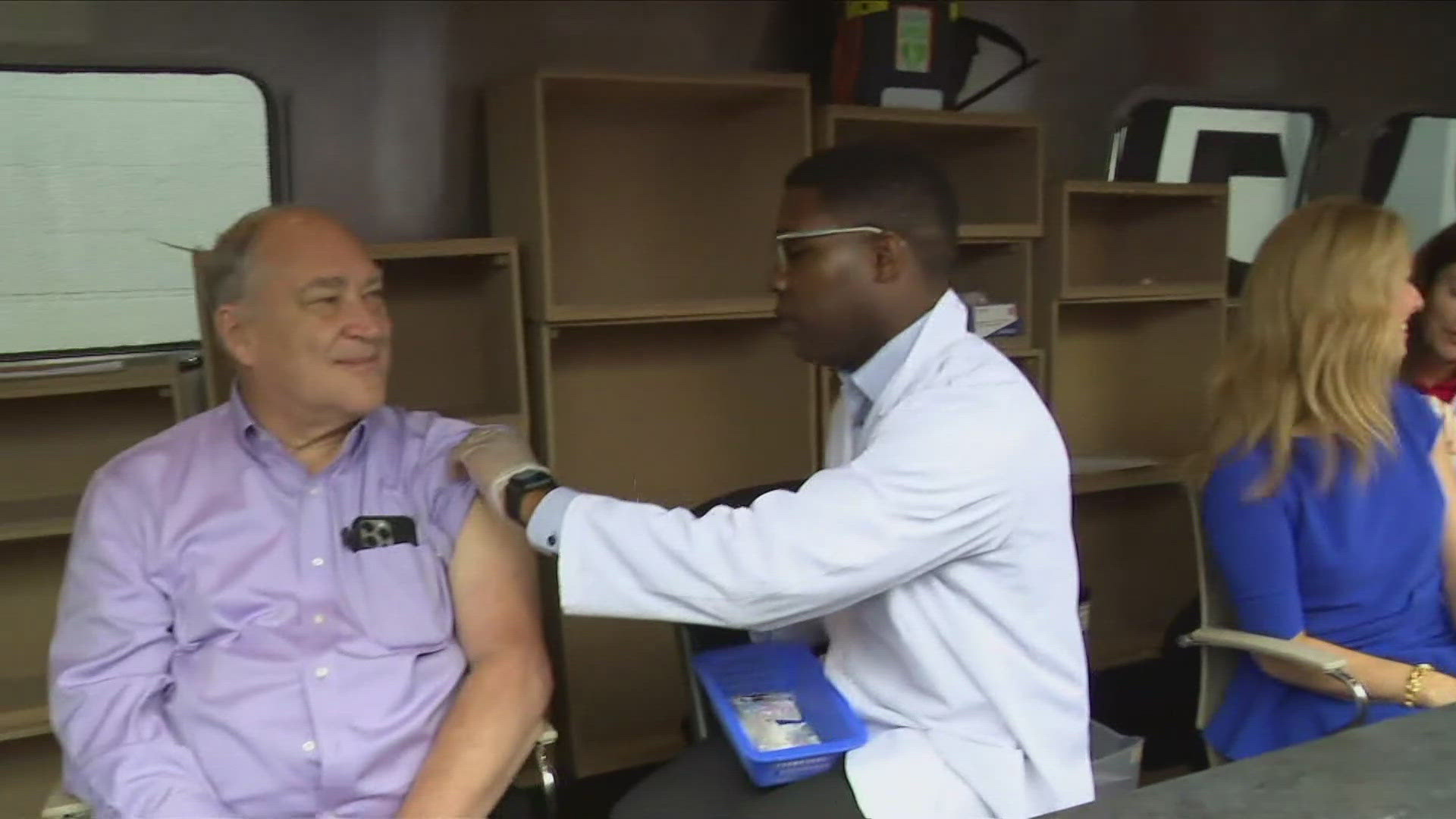WASHINGTON — Local food banks say more people are asking for meal assistance in the Washington region than ever before.
The Capital Area Food Bank said before the pandemic began to spread locally, there were about 400,000 people who were “food insecure” locally. Now, Radha Muthiah, president and CEO of the Capital Area Food Bank, said that number is closer to 600,000 people.
”We're seeing an increase in the number of food-insecure individuals and a pretty dramatic increase,” she said.
The U.S. government defines food insecurity as the disruption of food intake or eating patterns because of a lack of money and other resources. Muthiah says food insecurity could ultimately climb as high as 60% this year.
As more locals look for food, they have to do so without additional help from the federal government. On Tuesday, President Donald Trump announced that he asked his representatives on Capitol Hill to stop negotiating a new stimulus package until after the election on Nov. 3.
Muthiah said she fears the president’s decision could have a dire impact on people in need.
“Our data has shown a tremendous increase already in the number of food-insecure individuals and without this additional stimulus, these individuals are going to count on more support from institutions like ours to be able to put food on the table,” she said.
The Capital Area Food Bank is not the only local institution that is now helping more of its neighbors.
“Since the start of the pandemic, Catholic Charities DC has seen a significant increase in need for food and other assistance to help people cover their basic needs” Kate Kennedy, communications director of Catholic Charities of the Archdiocese of Washington, said.
Catholic Charities DC said all three of its food pantries in Northwest D.C., Montgomery County and Southern Maryland have noticed a significant increase in requests for help.
“The food pantry at our Spanish Catholic Center in the Mount Pleasant neighborhood of D.C. went from servicing 50-60 families a week [before the pandemic] to almost 650 families a week,” Kennedy said.
Catholic Charities DC has added large food distributions to assist the needs of those financially hurt by the pandemic. Kennedy said the organization is also conducting weekly direct distributions to senior housing complexes and elementary schools this month.
Despite the increase in demand of locals in need, Catholic Charities DC said it can still assist the public.
“Thanks to the generosity of the community and our many supporters, we have been able to meet this expanded need,” Kennedy said. “The support has also allowed us to plan assistance through the end of the year.”
Muthiah said anyone who requests assistance from the Capital Area Food Bank will receive it as well.
However, she adds donations from retailers have dropped because Americans are buying their food from grocery stores more than they have in the past; retailers no longer have the excess inventory to give as much food away.
“Food was flying off the shelves early on in the pandemic and so food donations to us from retailers dropped significantly,” she said. “And, we are hearing from our retail partners not to expect food donations to go back to prior pandemic levels for at least four or five months. So. for us, it means we're purchasing much more food than we had before.”
Catholic Charities DC said it will set up an outdoor food pantry at its center in Silver Spring Oct. 13.
You can also donate to its special COVID-19 response fund here.
In the meantime, Kennedy said Catholic Charities DC has recently received many requests for rental fee assistance. She said the organization is paying special attention to that issue as it is possible the number of evictions locally could increase toward the end of the year.
If you need help, the Capital Area Food Bank says to call its Hunger Lifeline at (202) 644-9807 or go to their website and click the “Get Help” button.



